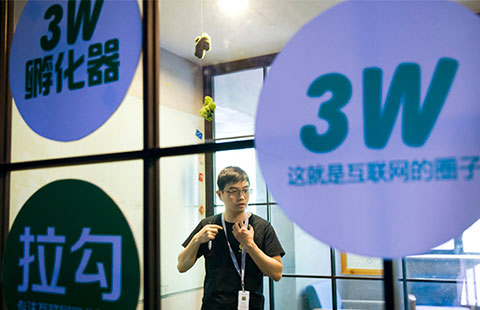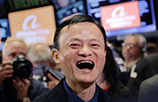China must watch out for risk of capital outflows
By He Jun (China Daily) Updated: 2015-06-08 07:27The figures of foreign exchange settlement and sale from China's banks also show that capital is flowing out. The deficit of foreign exchange settlement and sale was $8.2 billion in January, reaching $17.2 billion in February and $66 billion in March. On the other hand, the data of the banks' cross-border payments and receipts on behalf of their clients also show the same trend. In January, the surplus of this business was $36.7 billion, falling to $18.3 billion in February. In March, it turned into a deficit of $23.8 billion after a violent fluctuation.
Yi Gang, vice-president of China's central bank, said: "China has large-scale commodity trade and service trade, as well as numerous FDI and ODI. The cross-border flow of people, commodities, cash and investment all contribute to the capital flow." Last year, for those companies and individuals within China, earnings from foreign business were $3.3 trillion, while expenditure was $3.2 trillion. China's banks have more than $10 billion in cross-border payments or receipts on behalf of their clients, including companies and individuals.
In addition, some capital outflows are not under the supervision of the authorities. Most of that capital flows out illegally or without declaration, which means it could be considered capital flight.
According to The Wall Street Journal, Chinese investors have spent $40 billion on real estate in other countries in the past seven years. Moreover, some other data show that Chinese personal investments in foreign real estate added up to $16.5 billion last year, 46 percent higher than in 2013. It is estimated that this figure will double to $35 billion this year. Quite a few of these investments are capital flight.
Considering the changes in the global economic climate and the international financial market, emerging markets will see a large amount of capital flowing out.
China, as the largest emerging economy, should be alert for a huge capital outflow in the case of more downward economic pressure and a cooling of market confidence in the Chinese economy.
The author is a senior researcher with Anbound Consulting, a think tank for public policy. The views do not necessarily reflect those of China Daily.
- China-backed rail project part of Brazil's infrastructure program
- China 'still set for healthy growth'
- Coffee shop where Premier Li met entrepreneurs
- China's new rail giant bags first overseas deal from India
- China promises better environmental protection
- China's rail freight volume picks up
- Chinese companies go intl at Italian world expo
- More easing likely amid subdued inflation

















